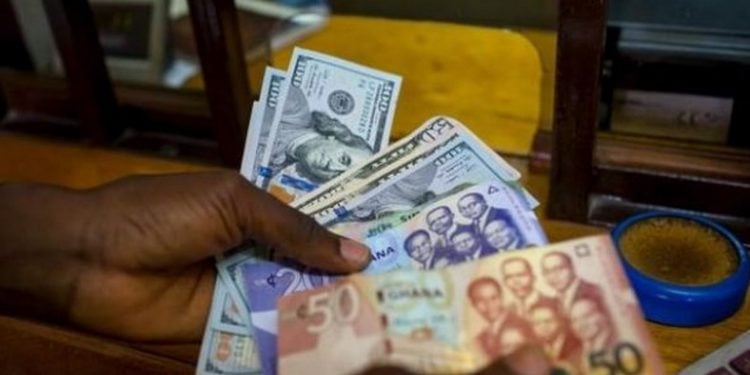Ghana’s currency, the cedi, has experienced a remarkable resurgence in 2025, exhibiting significant appreciation against major international currencies. This positive trend is projected to persist through 2026, underpinned by robust foreign exchange reserves held by the Bank of Ghana and sustained high global gold prices. Fitch Solutions, a prominent UK-based research firm, attributes this stability to a supportive macroeconomic environment, highlighting the $7.9 billion in international reserves and the substantial revenue generated from record-high gold prices as key stabilizing factors. This financial buffer provides the central bank with the necessary resources to intervene in the foreign exchange market and manage exchange rate fluctuations, effectively bolstering the cedi’s value.
The cedi’s appreciation is a significant departure from previous years, where it often faced depreciation pressures. The current strength reflects a combination of favorable internal and external factors. Internally, the Bank of Ghana’s proactive monetary policies, coupled with improved fiscal discipline, have contributed to macroeconomic stability, boosting investor confidence and attracting foreign investment. Externally, the high demand for gold, driven by global economic uncertainties and geopolitical tensions, has significantly benefited Ghana, a major gold producer. This increased demand has translated into higher export earnings, bolstering the country’s foreign exchange reserves and further supporting the cedi’s value.
However, Fitch Solutions cautions against complacency, warning that the cedi’s stability is contingent on sustained high gold prices. A hypothetical sharp decline in gold prices, potentially triggered by a sudden easing of geopolitical tensions, poses a significant risk to the cedi’s strength. Such a scenario would lead to a decrease in export earnings, potentially pushing the current account back into deficit and undermining the adequacy of the country’s foreign reserves. Consequently, the central bank’s capacity to defend the cedi would be significantly diminished, potentially forcing a devaluation of the currency.
The cedi’s impressive performance in 2025 has been remarkable. According to data from the Bank of Ghana, the currency appreciated by an impressive 40.7% against the US dollar in the first seven months of the year, reaching GH¢10.45 to $1 on the interbank market by the end of July. This upward trajectory continued in May and June, with the cedi strengthening by 43% and 42.6% respectively against the dollar. These substantial gains represent a significant turnaround in the currency’s performance, reflecting improved economic fundamentals and increased investor confidence.
The cedi’s strength is not limited to its performance against the US dollar. It has also demonstrated significant appreciation against other major international currencies. In June, the cedi gained 24.2% against the euro, reaching GH¢12.25, and 31.2% against the British pound, reaching GH¢14.02. This broad-based strength reinforces the narrative of improved macroeconomic conditions and increased confidence in the Ghanaian economy. The cedi’s robust performance against these major currencies indicates a positive shift in market perception and reflects the country’s improved economic outlook.
As of early August 2025, the cedi maintains its strong position, trading at GH¢10.50 to the dollar on the interbank market and GH¢12 on the retail market. This sustained strength signals growing confidence in Ghana’s monetary stability, albeit with the caveat that this stability is partially contingent on the continuation of favorable external conditions, particularly the prevailing high gold prices. While the current outlook is positive, continued vigilance and sound economic management will be crucial to safeguarding the cedi’s gains and mitigating potential risks arising from external shocks. Diversifying export earnings and reducing dependence on gold would be beneficial long-term strategies to enhance the resilience of the Ghanaian economy and the stability of its currency.


